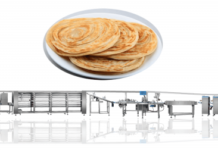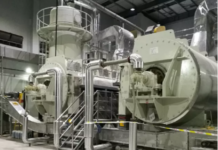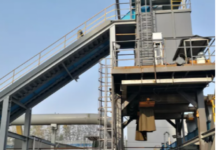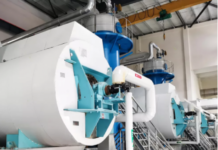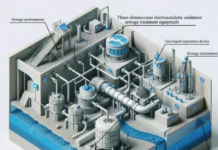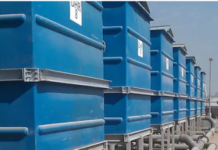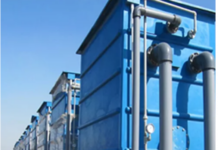Are you trying to contribute to planet conservation? Let’s learn a few effective ways of sustainability that you can instill in your daily life and help to save the Earth.

‘Go Green’ is currently the common motto for most businesses and industries, with Mother Earth going through a terribly bad situation. The Earth is already at its limit, with every year becoming the warmest year due to the wide array of effects of Global Warming. Other than the increasing heat and the natural catastrophes, there are many other reasons to shift towards a sustainable lifestyle, and that is why it is not just a corporate or an industrial duty, but people need to take it seriously at a personal level. It is not just about buying the products that claim to be eco-friendly, but also about actively participating in different activities to make this world better. Every effort counts when it comes to saving Mother Earth, and you should be a part of it, too.
What is Sustainable Living?
According to experts, sustainable living is defined as “a lifestyle that attempts to reduce an individual’s society’s use of the Earth’s natural resources, and one’s personal resources.” To simply, one must always be aware of their actions and make sure none of their actions hurt the environment or Mother Earth. These individuals’ efforts on a personal level can bring a big change, and when everybody is more likely to lead a sustainable life.
15 Sustainable Ways of Living
- Time for Green Sabbath
You don’t have to be religious to understand what Sabbath means, as Ozzy Osbourne has already made people know about it with his songs of Black Sabbath. Sabbath is considered to be the dedicated time in your daily life that you spend in prayer or taking rest. A Green Sabbath is similar to it, but in this case, you do not pray or sleep; rather, you take care of nature. The green Sabbath of an eco Sabbath can be maintained by letting your electronic devices rest. We are highly engaged in your electronic devices and tend to use them till we sleep. If you cannot maintain it every day, try to keep this Sabbath at least for one hour every week when you do not use any electronic device and keep them off. It might not sound much, but it can actually help to reduce your yearly carbon emissions by 0.6% which adds up to a lot when every single person starts this energy-saving practice.
- Sleep at the Right Time
Sleeping at the right time is not just good for your health, but it is also good for the environment. When you sleep early at night, you turn off lights, television, your laptop, and other digital devices that you use for the rest of the day. And it can greatly reduce your energy consumption on a daily basis. Other than regulating your circadian rhythm, the habit of early sleeping can also help to cut down electricity bills to a greater level. It is like hitting two birds with a single stone, where you not only improve your sleep schedule but also contribute more to sustainability with a goal of saving nature.
- Reusing Your Old Clothes
No, this is not just the idea of thrift shops but something even bigger. We are all fascinated with having a perfect wardrobe collection where you have all kinds of clothes that you need, but even after getting that, you do not stop buying, as you cannot wear the same clothes for multiple occasions, and you will seek something new. Instead of throwing out your old clothes, you can use them to create new clothes with art and patchwork, which makes them appear more unique. The bed sheets and towels at home get worn out pretty quickly for daily usage, and you can use these clothes for other purposes. For example, you can cut them into small pieces and turn them into dusters or kitchen towels that are soft and can easily absorb water or any kind of spillage.
- R = Refuse
No, we are not talking about R for recycling or reusing here, but more like R for refuse, as you need to keep a strong vision and opinion when you are trying to save the earth. Simply refuse all kinds of products that use plastic in almost everything. For example, you can order food online and opt for no cutlery, which will reduce the amount of wastage. Opt for the eco-friendly order grouping option for delivery, which also reduces CO2 emissions. Use metal bottles and ceramic plates instead of plastic, which you can wash and reuse without throwing them out. According to a recent report by FSSAI, more than 22,000 tonnes of plastic are being generated every year for online food delivery purposes only.
- Let’s Use the Takeout Containers
The greatest invention of the century would be online food delivery services, and nobody is against it, but too much convenience comes with a fair share of problems as well. In this case, it is the plastic containers in which food is delivered. When you order takeout, do not throw the containers after eating, as most of these containers are reusable and recyclable. You can easily wash them and reuse them for various purposes in your kitchen. It can be used for storing leftovers in the fridge, or you can also use it to carry snacks or lunch when you are going out. A lot of people like to put soil in them and turn them into mini-pots for the plants, and that works too.
- Opt for Only Paperless Mails
In this digital age, most stuff in your daily life can be reached digitally or virtually. The newspaper is not thrown at your doorstep anymore, as most people get all the new updates from the internet only. You should always opt for paperless mail that you can easily get through your email ID. Subscribe to e-newsletters, and there will be no waste of paper. Paper is made from trees, and going paperless can help to save a lot of trees that are used for the creation of paper. Say no to all kinds of physical receipts and opt for only e-statements, which reduce the amount of paper wastage.
- Time to Clear e-Junk
After opting for electronic mail in every case, you will be receiving a lot of emails, and Google’s default cloud storage of 15 GB is not enough for all that data. When the storage is full, should you opt for buying more cloud storage for your emails? Absolutely not! Instead, try to declutter and clean your e-junk every day so that the equilibrium of storage is maintained without trying too hard. The junk emails keep piling up and sit in your inbox, and that also includes spam and trash folders. The more data you use, the bigger space it will require in its data center. Therefore, your e-junk can actually take up physical space and can cause harm to the environment. Clean your emails to keep nature clean. Every spam email can release up to CO2 into the atmosphere, and that’s a lot if you consider the billions of users around the world.
- BYOB
No, it is not booze, but BYOB actually stands for ‘bring your own bottle’. It is the first step of living a sustainable life that can help cut down on the number of plastic bottles that are produced, and always have access to clean drinking water. According to a recent report, more than 300 million tons of plastic are produced every year, and around 50% of it is used for single-use plastic products. Start using reusable water bottles, which can help reduce the amount of plastic that is used to package mineral water.
- Organic Toothbrush
Do you know for a fact that each human uses around 300 brushes through their lifetime, and all of these brushes are made of plastic only, which are thrown in the trash after their use? Instead of creating so much plastic wastage, you can opt for organic toothbrushes, which are made from natural elements. By changing your toothbrush, you can easily reduce your carbon footprint. It is recommended to use a bamboo toothbrush or a neem stick, which seems to be quite effective for your dental health. These natural ingredients work for all without causing any allergy or side effects.
- Save Water Whenever You Can
Just because you do not have a lack of water, does not mean you have the right to waste it. Try to save water whenever you can, as saving water is the first priority of sustainability. Harvesting rainwater, keeping the dirty water use in the toilet later, not wasting more water than you need; these are some of the simple tricks that you can utilize to reduce water wastage even if you do not have an acute shortage of it.
The idea of sustainability in your daily lifestyle can be instilled only when you start caring about your home, Mother Earth!


